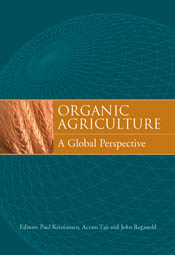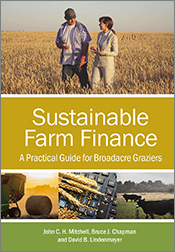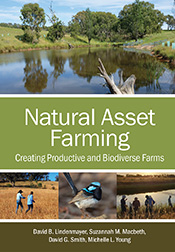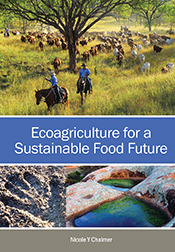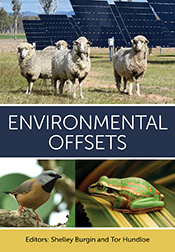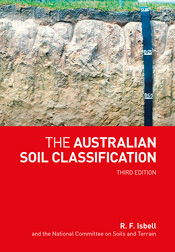Organic Agriculture
A Global Perspective
Edited by: Paul Kristiansen By: Acram Taji, John ReganoldOverview of current practices in organic agriculture with analysis of strengths and weaknesses.
With global revenue surpassing twenty-five billion dollars annually, organic agriculture is a highly visible and rapidly growing component of agricultural production. In Organic Agriculture: A Global Perspective, Paul Kristiansen, Acram Taji, and John Reganold, and their international group of contributors scientifically review key aspects of organic agriculture. At the intersection of research, education, and practice, the contributors look at the organic agricultural movement’s successes and limitations. + Full description
The first half of this book critically evaluates the agricultural production of both plants and livestock in organic farming systems. All major aspects of organic agriculture are explored, including historical background and underlying principles, soil-fertility management, crop and animal production, breeding strategies, and crop protection. This global and comprehensive overview also addresses the economic, social, and political aspects of organic farming. These include economics and marketing; standards and certification; environmental impacts and social responsibility; and research, education, and extension.
The book is a unique and timely science-based international work documenting current practices in organic agriculture and evaluating their strengths and weaknesses. For more than two decades, research into organic methods by mainstream scientists has generated a large body of information that can now be integrated and used for assessing the actual impacts of organic farming in a wide range of disciplines. The knowledge of selected international experts has been combined in one volume, providing a comprehensive review of organic farming globally.
Researchers, teachers, extensionists, students, primary producers and others around the world who are interested in sustainable agriculture will find this book to be a valuable and reliable resource.
- Short descriptionNews
No longer available in a print edition.
Reviews
"Organic Agriculture will be invaluable to both those teaching about organic farming systems in universities and colleges, and to the increasing numbers of students and others doing research in this area. It should become compulsory reading for all planners and policy makers currently involved in formulating the future architecture of sustainable agricultural development throughout the world."
Neil Macgregor, Journal of Organic Systems, Vol.2, No.1, 2007
"This is essentially an academic textbook… those willing to pay the price will find rich philosophical pickings."
Organic Gardener, Spring 2006
"In my opinion, this book has achieved its objectives. I thus recommend it to those interested in the organic industry as a valuable resource in galvanising an understanding of the complexities and dynamics of organic agriculture."
Greg Paynter, Australian Organic Journal, Summer 2006
Features
- Presents a scientific analysis of organic farming practices
- Integrates production, economic and social issues
- Features an international team of contributors
Contents
ForewordPreface
Acknowledgements
List of contributors
Organic production
Overview of organic agriculture Soil fertility in organic farming systems
Crop agronomy in organic agriculture
Special topic 1. Developing no-tillage systems without chemicals: the best of both worlds?
Crop protection in organic agriculture
Organic plant breeding and seed production: ecological and ethical aspects
Special topic 2. Biodynamic agriculture today
Organic livestock husbandry and breeding
Animal health and nutrition in organic farming
Animal welfare and ethics in organic agriculture
Regulatory and management issues
Organic standards and certification
Special topic 3. Contradiction of principles in organic farming
Economic management in organic agriculture
Understanding the market for organic food
Beyond the farm gate
Environmental impacts of organic farming
Special topic 4. Tillage: how bad is it in organic agriculture?
Food quality and organic agriculture
Social responsibilities of organic agriculture: learning, collaboration and regulation
Special topic 5. Voice from the other side: a Ghanaian view on organics
Knowledge and capacity building
Research to support the development of organic food and farming
Education and training in ecological agriculture: Nordic region and the USA
Design of farmer education and training in organic agriculture
Summary
Key issues and challenges for the future
Index
Authors
Dr Paul Kristiansen currently teaches and researches agricultural systems at the University of New England, and has 15 years experience in organic farming in Australia. He has taught horticulture, weed management and organic crop protection in private and public institutions and is an Advisory Board member of the Organic Federation of Australia.Professor Acram Taji has been involved in tertiary teaching and research in Australia, South Pacific, Sri Lanka, Japan and the USA and currently teaches plant sciences at the University of New England. She has authored or edited over 200 research articles and eight books mostly in the area of plant breeding and physiology.
Regents Professor John Reganold has worked at Washington State University since 1983. He teaches soil science, organic agriculture and land use, and conducts research on the effects of organic and conventional farming systems on soil health, crop productivity and quality, financial performance, energy efficiency and environmental quality, with publications appearing in Science and Nature.

